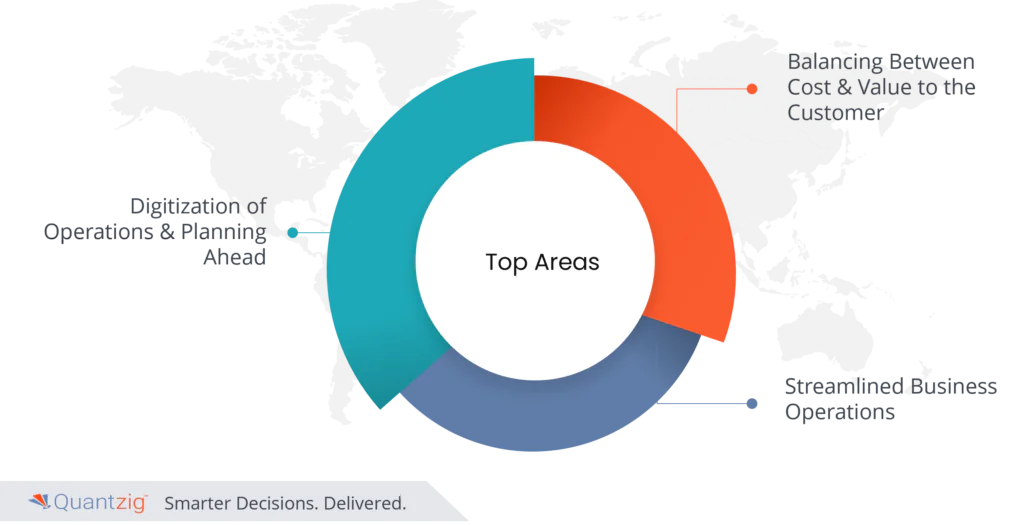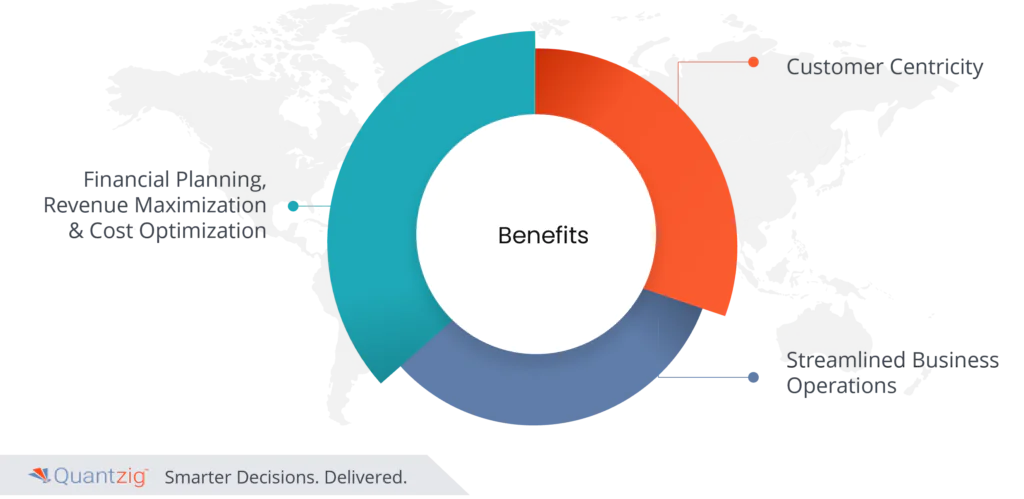Written By: Sudeshna Ghosh
As the global travel industry embarks on a path of recovery, optimizing hospitality operations becomes paramount for sustained success. This article delves into the pivotal role of efficiency and effectiveness in navigating the challenges and opportunities presented by the evolving travel landscape. From streamlining guest experiences to enhancing backend processes, leveraging innovative technologies and data-driven insights, the hospitality sector stands at the intersection of resilience and transformation. Join us on a journey through the strategies and technologies reshaping the industry, ensuring that hospitality operations not only recover but thrive in a post-pandemic world.
Table of Contents
Overview
In the evolving landscape of the travel industry, maintaining a competitive edge and achieving business excellence is contingent upon several key factors. Paramount among them is the imperative to ensure comprehensive visibility into every facet of hospitality operations. This involves not only internal processes but also transparent communication with customers, fostering trust and loyalty.
Moreover, the judicious use of visibility data becomes instrumental in proactive planning for optimized business operations. The strategic application of intelligence is another critical success factor, striking a delicate balance between delivering unparalleled customer value and ensuring cost efficiencies. This includes the implementation of customer-friendly initiatives like Do-it-yourself (DIY) options and self-service functionalities, meticulously calibrated to enhance the overall customer experience without inducing fatigue. Embracing these strategic imperatives positions the industry to navigate the challenges of travel recovery effectively, fostering resilience and sustained excellence.
Top Areas

- Digitization of Operations & Planning Ahead
In the post-pandemic landscape of travel recovery, the digitization of hospitality operations stands as a pivotal strategy. Embracing digital technologies allows for the seamless integration of various facets of operations, from reservations and check-ins to room service and feedback collection. This digitized approach not only enhances operational efficiency but also provides a wealth of data for insightful analysis.
Planning ahead becomes a critical component of this digitization effort. Utilizing the visibility data garnered from digitized operations, businesses can proactively anticipate demand fluctuations, optimize staff allocation, and streamline services. Whether it’s forecasting peak travel periods or tailoring offerings to specific customer preferences, this forward-looking approach enables the industry to navigate the uncertainties of the recovery phase with agility and precision.
- Balancing Between Cost & Value to the Customer
Achieving operational optimization in hospitality during travel recovery necessitates a delicate equilibrium between cost considerations and delivering exceptional value to customers. Implementing cost-effective measures, such as self-service options and streamlined processes, is crucial. However, it is equally important to ensure that these efficiency-driven initiatives align with enhancing the overall customer experience rather than compromising on service quality.
Balancing this equation involves strategic decision-making, where cost efficiencies are sought without undermining the perceived value for customers. This strategic alignment not only contributes to customer satisfaction but also strengthens the financial resilience of businesses in the challenging landscape of travel recovery. The harmonious interplay between cost-conscious measures and delivering meaningful value positions hospitality operations for sustained success in a dynamic and evolving industry.
Benefits

- Financial Planning, Revenue Maximization & Cost Optimization
Optimizing hospitality operations during travel recovery brings forth a myriad of benefits that are instrumental in steering businesses towards sustained success.
Financial Planning: Implementing efficiency measures allows for meticulous financial planning. With digitized operations providing real-time data, businesses can create comprehensive financial strategies that align with market demands, ensuring judicious allocation of resources.
Revenue & ROI Maximization: Streamlined operations contribute directly to revenue maximization. From efficient reservation systems to personalized customer experiences, each optimized aspect enhances the overall revenue potential. Simultaneously, a focus on return on investment (ROI) ensures that every operational enhancement is strategically aligned with long-term financial goals.
Cost Optimization: An integral facet of operational optimization is prudent cost management. By identifying and implementing cost-effective solutions, businesses can achieve a harmonious balance between enhancing services and optimizing operational expenses. This cost-conscious approach reinforces financial resilience.
- Customer Centricity & Streamlined Business Operations
Efficiency and effectiveness in hospitality operations translate into a heightened focus on customer-centric practices. With digitization facilitating personalized experiences, businesses can tailor services to individual preferences, thereby enhancing overall customer satisfaction.
The streamlining of business operations is another pivotal benefit. Digitized processes, data-driven decision-making, and a customer-centric approach collectively contribute to a seamless and efficient operational framework. This not only elevates the overall guest experience but also positions the business as agile and responsive in the evolving landscape of travel recovery.
In conclusion, the benefits derived from optimizing hospitality operations extend beyond financial gains, encompassing enhanced customer satisfaction, streamlined processes, and a resilient foundation for long-term success in the dynamic realm of travel recovery.
What the Future Holds
The future of travel envisions a seamlessly integrated experience, marked by a convergence of services from doorstep to destination. This integration will be characterized by a high degree of customization, allowing customers to transact across diverse channels and platforms digitally and personally with unparalleled ease. The key to this vision lies in minimizing friction throughout the entire customer journey. From booking accommodations to navigating travel itineraries, future operations aim to provide a unified, user-centric experience. This entails leveraging advanced technologies and digital platforms to create a travel landscape where individual preferences, convenience, and a cohesive customer journey take center stage. The emphasis is on creating a future where travel becomes not just a service but a personalized and frictionless lifestyle experience.
Statistics:
- The travel industry is witnessing a significant transformation, with 70% of companies investing in AI to enhance both operational efficiency and customer experiences.
- By 2025, AI-powered chatbots and virtual assistants are poised to take on a substantial role, handling 60% of travel bookings, ushering in a new era of automated and seamless travel planning.
- Additionally, the implementation of AI is proving instrumental in identifying and preventing fraudulent transactions within the travel sector, resulting in potential loss reductions of up to 30%.
- These statistics underscore the pivotal role of AI in shaping a more efficient, automated, and secure future for the travel industry.
Conclusion:
In conclusion, the paradigm shift toward digitization, cost-value balance, and customer-centric strategies is redefining hospitality operations in the travel sector. The emphasis on financial planning, revenue maximization, and streamlined operations positions the industry for resilience and growth. As travel continues to evolve, the future holds a seamlessly consolidated, digitally driven experience for customers. By leveraging AI and optimizing operations, the travel industry can navigate the path to recovery with efficiency and effectiveness, ensuring a dynamic and customer-centric approach that aligns with evolving market demands.


